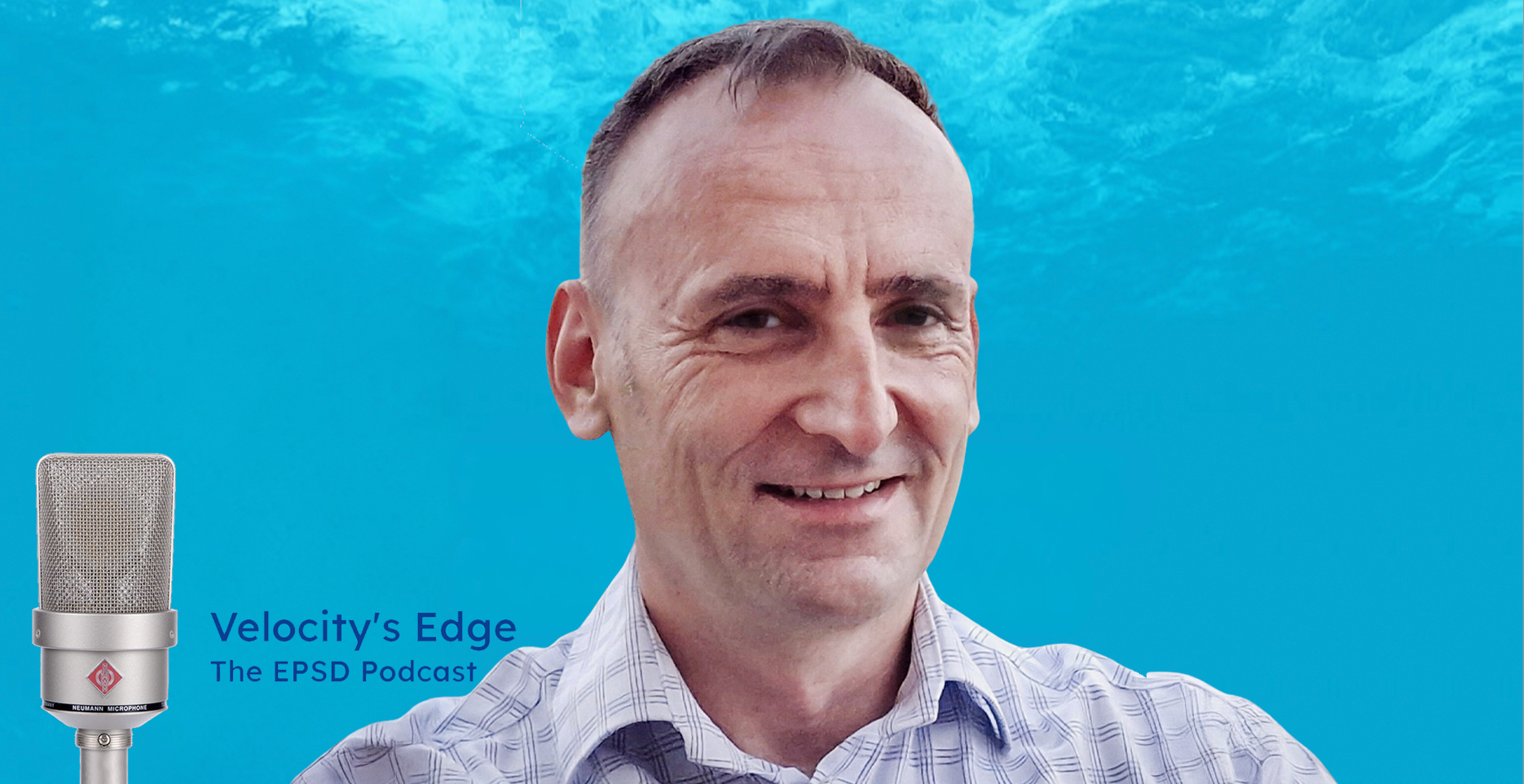Filter By:
Velocity's Edge Podcast S1E7 - Peat Bakke on Operationalizing Decision Records
When Peat Bakke sits down for breakfast with engineering leaders, the conversation inevitably turns to the same frustrating pattern: talented people leave, and with them goes critical context about why systems work the way they do. Not just the technical details—those live in the code—but the reasoning behind architectural and technical choices, the problems those choices solved, and crucially, the alternatives that were deliberately rejected.
Read moreVelocity's Edge Podcast S1E6 - Thomas Dullien & Chris Swan on Decision Records
Most engineering leaders think institutional knowledge loss is an inevitable cost of growth. They see departing employees take critical context with them—why certain processes exist, what problems they solve, how trade-offs were evaluated—and assume the solution involves better handoff documentation or knowledge transfer sessions. But as EPSD Advisory Board members Thomas Dullien and Chris Swan learned through building and scaling organizations, the biggest risk isn’t losing people; it’s losing the reasoning behind the decisions those people made.
Read moreVelocity’s Edge Podcast S1E5 - Sarah Wells on Cultural Change
Most engineering leaders think velocity problems are technology problems. They see slow deployments and assume the solution involves better CI/CD pipelines, more developers, or migrating to microservices. But as Sarah Wells discovered as she experienced the digital transformation of the Financial Times, the biggest constraints aren’t in your codebase; they’re in your org chart.
Read moreMoneyball for Engineers
The history of management of software development is littered with failed and discredited efforts to objectively assess individual performance. There is little consensus in the industry, organizations vary widely in how they do this, subjectivity and politics are rife, and few (if any) engineering leaders are content with the status quo.
Read moreVelocity’s Edge Podcast S1E4 - Carla Geisser & Chris Swan on Crisis Engineering
As Carla Geisser puts it: “The incidents that actually matter to how people interact with technology are not security incidents … They are things like, they can’t log into their bank account, they can’t buy their Taylor Swift tickets, they can’t get on an airplane.” And when everything’s on fire, most organizations make a critical mistake: they treat the crisis as the exception rather than the expectation. The companies that survive and thrive are those that understand a fundamental truth: if your business is growing, crises aren’t anomalies—they’re predictable outcomes of scale.
Read more“Technical Debt” and Making the Case for Engineering Work
Every engineering organization I work with has a challenge: making the case for the work you need to do as an engineering team that doesn’t directly result in new or improved features.
Read moreVelocity’s Edge Podcast S1E2 - Huw Rogers on Tech Debt
If you’re leading a profitable, cash-flow-positive business, you’ve probably watched technical debt pile up: those accumulated consequences of choosing quick fixes over well-designed, long-term solutions. If you’re not carefully managing it, it can become overwhelming.
Read moreVelocity's Edge Podcast S1E1 - Sarah Wells on Strategy
What makes an effective product engineering strategy? In the debut episode of the Velocity’s Edge podcast, host Nicko Goncharoff speaks with Sarah Wells about the importance of strategy to engineering effectiveness.
Read moreThe Currency of an Engineering Team Is Respect
The currency of an engineering team is respect, and this has nothing to do with position in the organizational hierarchy: instead, it’s about whether the person speaking knows what they are talking about. Do they make our work easier? Are the things they are asking us to do logical and consistent?
Read moreTech Debt in Scale-Ups
When tech companies hit hypergrowth, they face the challenge of evolving their software systems from minimally viable products (MVPs) to enterprise-grade platforms. These transformations extend beyond software development to affect entire organizations.
Read moreWhy Tech Debt Matters – And How to Pay It Off
When developers cut corners to ship products faster, they take on technical debt—a trade-off that can accelerate early growth but create long-term instability. Unlike financial debt, which can be strategic, tech debt compounds over time, leading to fragile systems, costly failures, and expensive remediation efforts.
Read moreHow Much Tech Debt is Too Much?
Tech debt is inevitable in innovation. The question isn’t whether your organization has it—but rather how well it’s managed. Proactive leaders strategically take on tech debt when necessary and implement processes to track, assess, and address it before it becomes a bottleneck.
Read more









